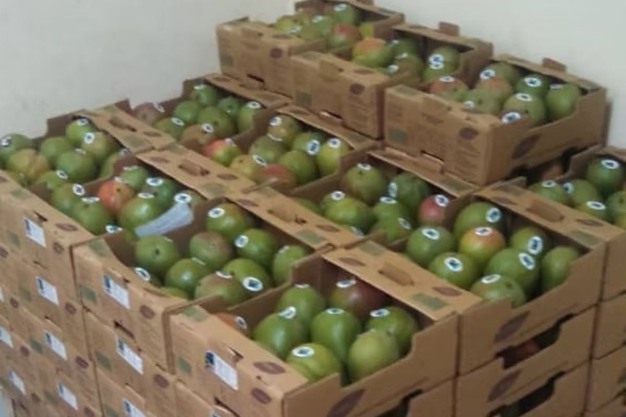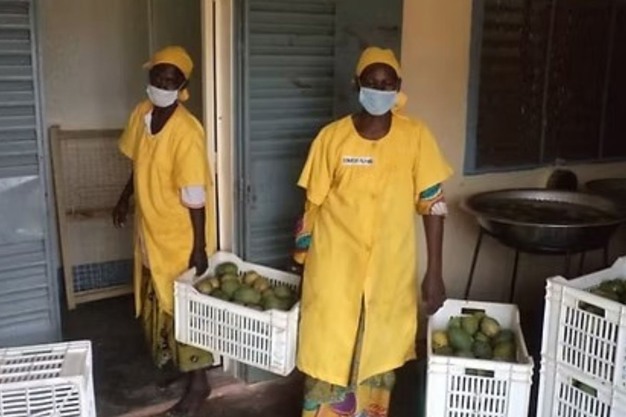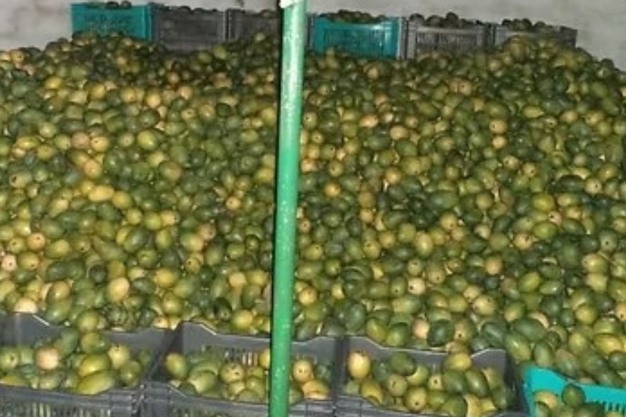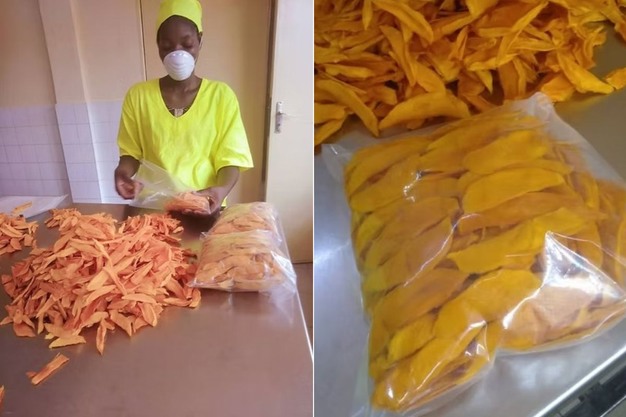The organic mango season in Burkina Faso, the largest West African origin in terms of acreage and volume -at least a few years ago, pending updated data on a rapidly evolving market- started early this year to match the commercial window offered by the month of Ramadan. Bovey Yohann, director of Burnikanture, shares his insights on the mango season and industry in Burkina Faso and West Africa.
 © Burkinature
© Burkinature
The exporter explains: "The season started very early this year, towards the end of February, with the Amélie variety. We decided to start our programs aligned with the Ramadan period to take advantage of a window of strong demand in Morocco, our main destination. This wasn't a risk-free strategy, as it could turn out that the fruit wouldn't be ripe enough or that there wouldn't be enough fruits to source. Fortunately, we were able to avoid these problems.
Climate conditions in Burkina Faso have been overall favorable for organic mango growers, even if the situation could have been better, according to Yohann. He explains: "Weather conditions have changed significantly. The rainy season was shorter but more intense. Mangoes need drought stress during flower induction, but they need rainy periods during fruit development. This year, there was a clear marking between the winter season and the rainy season. It would have been more interesting if the rains had been better distributed over time, but we're doing pretty well overall in terms of yield and fruit quality".
 © Burkinature
© Burkinature
The season has started with stable production parameters, the exporter adds. "National statistics shared by professional associations do not indicate any major increase in organic mango acreage. The production landscape is essentially made up of traditional orchards whose surface area is not changing. There are places with recent orchards, with an intensive production model, but they don't represent a large surface area."
Stable acreage doesn't necessarily mean stable volumes, according to Yohann. "It is still early, and we should be cautious regarding production figures. The rate of flowering is not the most decisive parameter, since successful flowering does not necessarily lead to full fruit development, and the diversity of varieties means different behaviors. The picture will only be clear when the next varieties are harvested. But I can say that for Amélie, the earliest variety, volumes are stable."
On the demand front, things are getting more complicated, and a combination of different reasons is contributing to a downward trend in demand for fresh organic mangoes from Burkina Faso. The exporter says, "In the past, we had strong demand from the Netherlands and France. But a lot has changed in the meantime. World supply has soared, slowing interest in West African mangoes. Our season is short, while Latin American origins have the advantage of a longer season. There is also strong competition between West African origins, with a production race. Here, origins such as Senegal and Côte d'Ivoire have the advantage of access to the sea, which reduces their transport costs. In the case of landlocked countries such as Burkina Faso and Mali, transport costs push up the price of our mangoes."
 © Burkinature
© Burkinature
"The trade is becoming more and more complicated too, and detrimental to growers," Yohann continues. "I have to say there's less honesty, a race for profit, and inventiveness to undercut growers' prices. For example, European buyers now blatantly tell us that they only need our mangoes to fill a gap in their calendars, dictating prices to us before even asking for information on the specs of our produce. These prices are, of course, below what we can afford, and we prefer to turn to mango processing or markets like Morocco. To be fair, I have to add that European buyers claim that there is a drop in Burkinabese mangoes quality, but I'm not sure if that's true. In any case, quality is improving a lot lately as the new government in Burkina Faso takes matters into hand."
The Moroccan market offers the capacity to absorb large volumes of mangoes on attractive terms. The exporter adds: "Moroccan importers have a more direct and honest approach. They take the volumes they need and simply pay their invoices. This means a more straightforward way of doing business, with better payment terms and no rush to lower prices for invented reasons. There's also a hype for mangoes in the Moroccan market, where consumers appreciate natural, squeezed juices. However, this demand is localized in time, with the Ramadan period being the best sales window."
 © Burkinature
© Burkinature
The situation could improve in the near future, as organic mangoes benefit from growing consumer demand while cultivated areas are shrinking in favor of conventional mangoes. The Atlantic initiative for Sahel countries, launched by Morocco in 2023, aiming to strengthen access to Moroccan ports for landlocked Sahel countries, could improve the competitiveness of Burkina Faso's exports to Europe. Yohann concludes, "We have heard about this initiative, which will undoubtedly be good for exports, but we do not yet know how or when it will be implemented."
For more information:
Bovey Yohann
Burkinature
Tel: +41786589964
Email: bovey.yohann@gmail.com
www.burkinature.com
